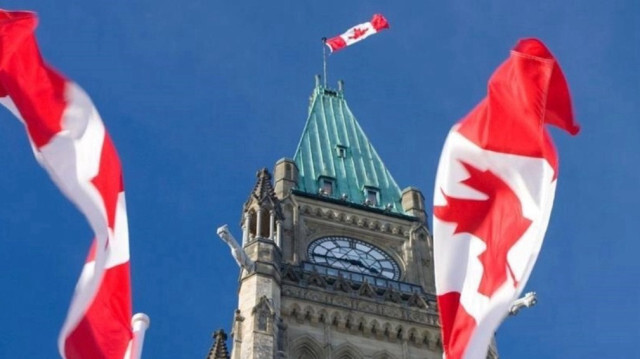
2 leaders stress implementing cessation of internal hostilities in Ethiopia as well as regional cooperation for peace
In a Tuesday phone call, Canadian Prime Minister Justin Trudeau spoke with his Ethiopian counterpart Abiy Ahmed about continuing efforts for peace.
"The two leaders discussed ongoing work toward the implementation of the Pretoria Cessation of Hostilities Agreement. In particular, they stressed the importance of continued efforts toward disarmament and demobilization," said a statement by Trudeau's office.
The cessation of hostilities involves the Tigray War, which began in November 2020 involving a conflict between the Ethiopian government and the Tigray People's Liberation Front (TPLF) in the country's north.
The conflict led to hundreds of deaths, a humanitarian crisis, widespread violence, displacement, and food shortages.
The Pretoria Agreement, brokered by the African Union, ended the conflict in 2022 with a cease-fire, the disarmament of Tigrayan forces, restoration of federal authority, humanitarian access, and transitional justice.
During the call, Abiy and Trudeau emphasized crucial steps toward disarmament and demobilization in the Horn of Africa country.
Trudeau expressed Canada's unwavering support for stability in Ethiopia and the well-being of its citizens.
The leaders delved into strategies for a peaceful resolution of internal conflicts, highlighting the imperative of providing humanitarian aid to those most in need.
Regional cooperation took center stage in the talks, with both premiers acknowledging its value, particularly in areas such as transit and trade.
Trudeau underscored the necessity of ensuring that such cooperation receives the agreement of all relevant parties involved.
Calling the call with Trudeau “productive,” Abiy said on X: “Our commitment to collaboration and shared goals remains strong.”
Currently, there is a state of emergency in the Amhara region of Ethiopia after a conflict broke out between the army and rebels.
The conflict between the Ethiopian military and rebels began in Amhara after the army launched disarmament operations in the region, sparking a resistance and a series of protests in Gondar, Kobo, Sekota, Weldiya, and other cities last year.

